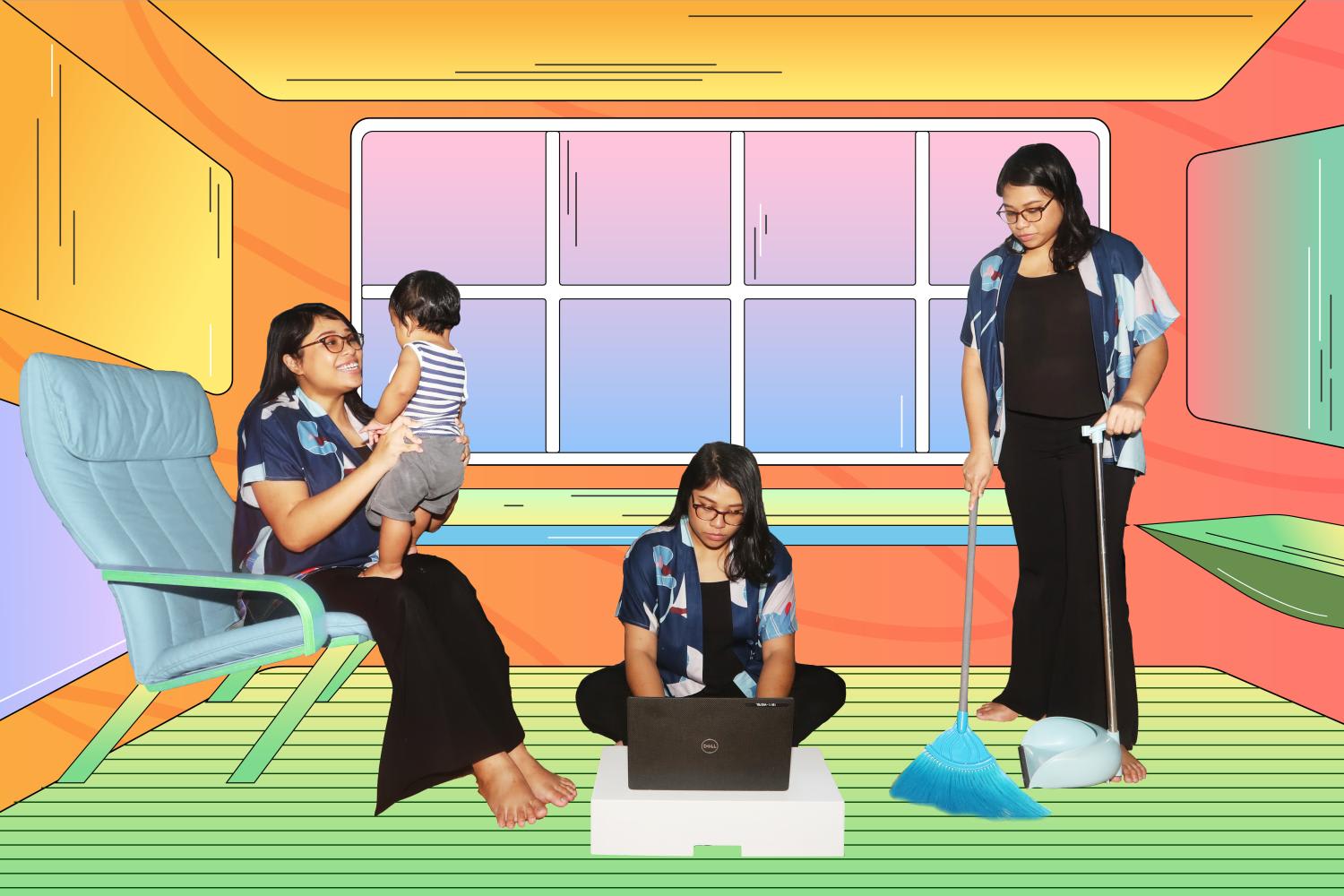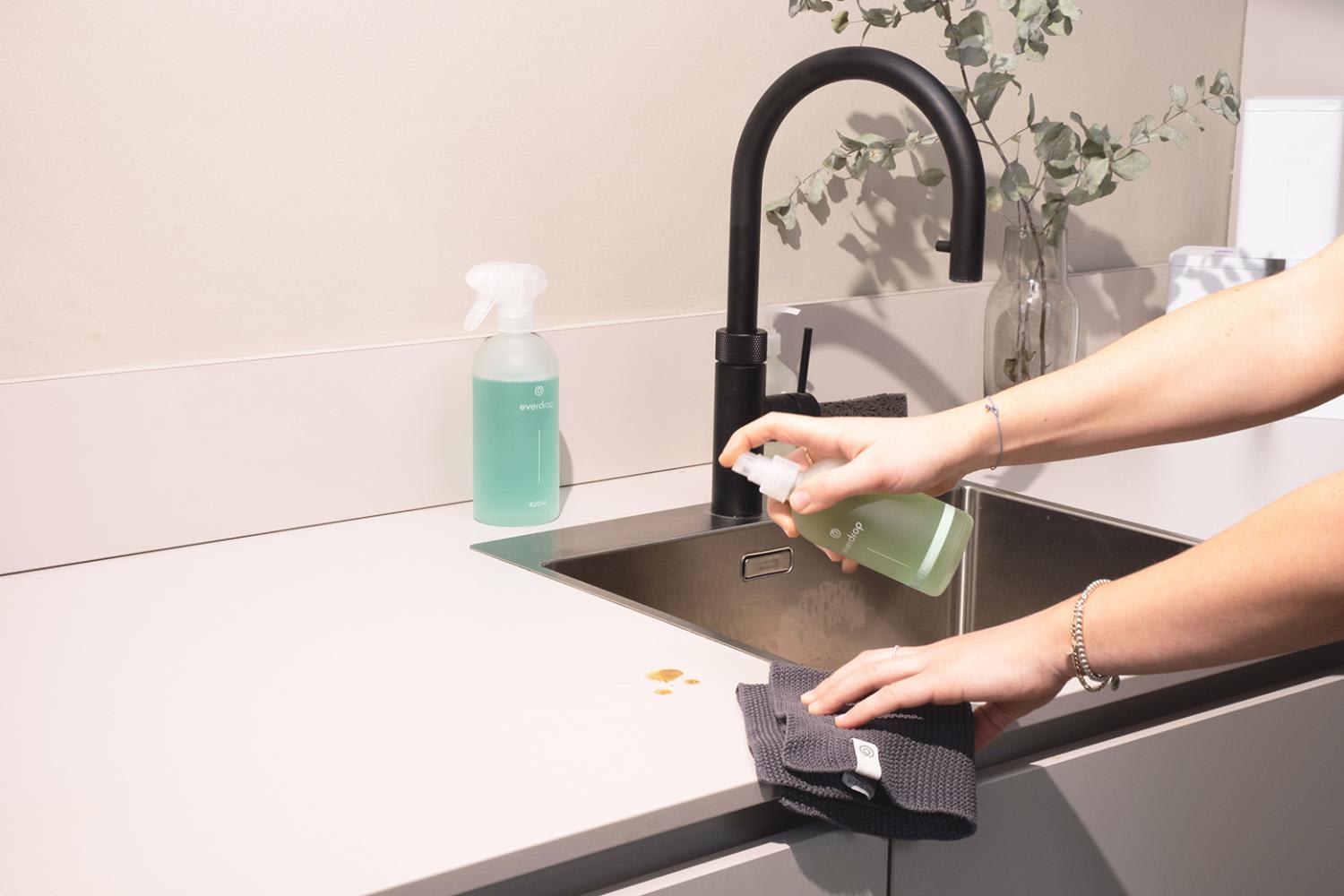Why Do Women Continue to Bear the Primary Responsibility for Å“mothering Â
Advertisement
Woman Up: From housework to keeping track of children's schedules, why is it still a woman's job to run a household?
SINGAPORE — Over the last five years, physiotherapist Clara Ng has received two promotions and now leads a team of five.

The Government's White Paper on women's development, which was submitted to Parliament earlier this year, laid out various ways that public policy can and should be used to promote gender equality in Singapore. But policies can only go so far if mindsets don't change. In this four-part Woman Up series, TODAY takes a look at the ways in which societal biases and perceptions are still holding women back from true equality — and why it's a problem men should also care about. This is the first instalment, which looks at the role of women at home.
- Studies have shown an increase of women in both the labour force as well as in corporate leadership
- But despite the progress made by women at work, they continue to do most of the work at home
- Experts said prevailing gender norms that still position women as being primarily responsible for housework and caregiving are harder to shake off
- Women need to "do less and talk more", and also give men space and opportunities to step up, say experts
SINGAPORE — Over the last five years, physiotherapist Clara Ng has received two promotions and now leads a team of five.
But at her other "workplace" — the home — the 34-year-old knows she has reached the pinnacle of her career and her team of two, comprising herself and her husband, is severely lacking in teamwork and a fair distribution of the workload.
"My husband helps to empty the rubbish bin when I tell him to. That's it," said Ms Ng, who declined to disclose her husband's occupation.
"Sometimes I wish I could mark him down as I do with people (at work) who are not team players."
Similarly, laboratory assistant Noor, who declined to give her full name, said she does a majority of the housework despite working the same number of hours as her husband, who is an information technology executive.
His only household task currently is to carry out the morning and afternoon school run for their two children, aged two and four.
The 32-year-old said she rarely complains about the unequal distribution of housework, even though it takes a toll on her physical and mental health.
She recalled how on the rare occasion she told her husband how she was feeling, he replied: "If my mother can do it, why can't you?"
Despite strides made in women's participation, representation and leadership in the workplace, the same progress has not been seen in households.
A study released last year by market research firm Ipsos and gender equality group United Women Singapore found that close to nine in 10 respondents agree that a husband and wife should share household chores equally.
The study found however that in reality more women take on the daily responsibilities of cleaning and laundry — tasks that require daily attention — while men take on tasks such as household repairs and management of tech devices, which need to be handled less frequently.
The poll, which was conducted in November 2020 and covered 500 married Singaporeans either with no children or whose youngest child is below the age of 18, also found that significantly fewer women (54 per cent) than men (75 per cent) were happy about their household and caring responsibilities.
This gap is wider among those with children, where 47 per cent of mothers say they are happy compared to 78 per cent of fathers.
A separate study by Singapore-based research organisation RySense published in February this year meanwhile showed that many women still hold on to the traditional belief that they remain the main household caregivers and see it as their duty or responsibility to raise and take care of children.
Its poll of over 750 married and working mothers in Singapore found that 80 per cent of them agreed they expect to be very involved in raising their children.
About half of respondents, or 49 per cent, also agreed that a father can never take care of his children like a mother does even if he wanted to, signaling that they still hold on to traditional gender role beliefs, said researchers.
Ms Shailey Hingorani, head of research and advocacy at the Association of Women for Action and Research (Aware), a non-profit organisation which advocates for women's rights and gender equality, said that women continue to dominate the division of labour at home.
This results in women typically performing a "double shift", where they should er the burdens of both paid professional work and unpaid domestic labour.
"Instead of a fairer redistribution of household work taking place when women enter the workforce, women are often expected to continue managing their family responsibilities while also engaging in paid work," said Ms Hingorani.
"This is one of the many gender inequality barriers faced by women in society."
Ms Kanak Muchhal, who is part of the women's strategic development team at charity organisation Daughters Of Tomorrow, said when the housework is seen as primarily a women's job, they are judged by the output similar to how employees are judged for their work performance.
Some of the women whom TODAY spoke to agreed and pointed out that while they are judged negatively for the way their households are run, little or no judgement falls on their partners.
This is the case for Ms Ng, who has been on one occasion told off by her mother-in-law for leaving a pile of laundry on the couch.
"She saw the pile of clothes (when my husband was video calling her) and asked him why the house was so messy. Then she asked him to tell me to 'clean a bit'," she said.
THE INVISIBLE WORK
While some men do share the burden of housework equally in some families, some women told TODAY that there is still the pressure of having to deal with the "worry work", or what experts have coined as the "mental load".
Eight of the 10 women TODAY spoke to said that while their spouses do their fair share of physical tasks, they are the ones keeping track of administrative household tasks, such as booking their child's medical appointments or planning family gatherings.
One of them is home-based baker Nur Hidayah Othman, 36, who assumes the job of remembering her children's daily schedules while she works at home.
The mother-of-three children aged between three and 12 said that among the things she needs to remember is the different timings her children return from school each day, the days they have extra-curricular activities or field trips, and miscellaneous things such as paying the fee for their enrichment classes on time.
She is also the person-in-charge of meal planning and watches her family's diet closely after her youngest son developed a peanut allergy about a year ago.
Asked why she took on these responsibilities, Ms Hidayah said: "If I don't do it, who will? I can't expect my husband to do it because he spends most of his time at work."
This "worry work" is what led Ms Nur Fazilah Anuar, 29, to quit her office manager job earlier this year.
Ms Fazilah said that both she and her husband, a police officer, work long hours, which often results in them picking up their eight-month-old baby from childcare later than the allocated time.
"He always says 'aiya if you pick him up late, just pay the late fees'. But every day I worried about ending work on time or facing (commuting) delays because I always feel so bad for the teachers who have to wait up. I also hate seeing my son being the last kid in the class," she said.
WHY DOES THIS PROBLEM PERSIST IN MODERN SOCIETY?
Experts said that while women's increased participation in the workforce may be due to some shifts in gender roles, or stem from the need to expand the family's income amid the rising cost of living, prevailing gender norms that still position women as being primarily responsible for housework and caregiving have been harder to shake off for a number of reasons.
Chief among these reasons is what couples experience growing up and how the roles that their parents played in the household become entrenched as their base for what responsibilities each gender takes on in the home.

Dr Shefaly Shorey, an associate professor at the National University of Singapore's (NUS) Alice Lee Centre for Nursing Studies, whose research focuses on family and women's health, pointed to studies which found men who are bought up by a single parent, for example, do not usually have such expectations of women because they did not experience an unequal sharing of household responsibilities between men and women while growing up.
"Studies have also shown that men (who are brought up by a single parent) inherently try to take on more work in the household," she said.
Associate Professor Gan Yunn Hwen, assistant dean at the Equal Opportunity and Career Development Office at the NUS Yong Loo Lin School of Medicine, said that the reason women's roles have evolved in the workplace but have remained largely the same at home, especially when there are children involved, is in part due to biology.
Women often begin with nursing their infants and therefore, are naturally more hands-on when the children are young.
Additionally, the strong presence of female domestic helpers in Singapore may also reinforce the idea that homemaking is still largely a woman's domain, said Assoc Prof Gan.
TALK MORE, DO LESS
Experts pointed out while the progress may be slower than in the workplace, gender roles at home are gradually being redefined and more men are contributing to housework.
But to get men to do more, women should consider doing less, they said.
Dr Shorey's advice to women looking to nudge their partners to do more at home is for them to "talk more and do less".
"Talk to your family members, especially your husbands, more. Tell them where they fall short and how they can help you. Tell them that you need to plan these things and get them in on the planning," she said.
"In order to reduce the mental load on women, our husbands need to realise that they need to step up and share the load."
Assoc Prof Gan said one strategy is to divide work along the lines of interests or competence.
"If each partner is willing to share the burden, dividing and tailoring the roles according to what each individual is good at or likes to do, then it goes a long way in easing the burden," she said.
Ms Hingorani pointed out that men should recognise and realise that household work benefits everyone in the household and that such work is "essential for society to function".
"There's nothing inherently gendered about housework. Gender does not determine whether someone can do it," she said.
Assoc Prof Gan believes it would take another generation or two before true equality at home can be achieved.
"Many in the older generations still hold very fixed views of the roles of men and women around the house and we need to take time to unlearn these very rigid notions to progress towards a more gender equal society," she said.
She added that this is why it is important to raise awareness about such issues in society and in the media, to create a shift in societal expectations of women and influence policy-making.
"This puts the pressure on men to pull their weight at home, and this also allows organisations and companies to think about family-friendly policies that will prompt men to be present and actively participate more in family life," said Assoc Prof Gan.

GIVE MEN SPACE TO CONTRIBUTE: EXPERTS
Men whom TODAY spoke to said they want to help more, but face difficulties while trying to contribute to caregiving and household management.
Such is the case for Mr Philip Tan, 36, who set out to help out with household chores and caregiving duties when his wife gave birth in 2019.
But Mr Tan, who works in the e-commerce sector, soon realised that he fell short of his wife's expectations despite his best intentions because of her "higher standards".
In fact, her ire over what she perceived as her husband's sloppiness was acutely felt during the peak of the Covid-19 pandemic, he said.
For instance, she would kick up a fuss when he did not wash dishes immediately after use.
"Sometimes I will let them pile up a bit more, but it's not like I'm not going to do it, it's just a matter of when," he said.
"
Just because you can do it (a task) better than your husband, doesn't mean you should do it all the time. Otherwise, how will he grow?Bryan Tan, chief executive officer of Centre For Fathering
"
As for Mr Muhammad Danial Yusop, he said his 18-month-old son just prefers his wife because of the attachment the mother and child formed during breastfeeding.
Knowing how tough his wife's job as a nurse is, the 29-year-old electrician said he wants to let his wife rest at night by tending to the infant when he wakes up. He also prepares his son's milk every night.
"But my son doesn't want me (to feed him), so end up (sic) I still need to wake her up," he said.
He added that it is a difficult situation, as he, too, wants to take care of his child and bond with him.
"I've told my wife to go out so she can have her "me time" and I can take care of him, but she's always so attached to him and will worry about him," he said.
Mr Danial's wife now often spends her "me time" just sitting at home in another room to watch television, or going out for no longer than two hours at a time.
"Sometimes, I think she cannot let go, like its very hard for her to trust me to take care of him," he said.
Mr Bryan Tan, chief executive officer of non-profit organisation Centre For Fathering, said that while some husbands may not be able to do certain tasks better than their wives, they should not be stopped by their wives from helping.
Referring to a term he called "maternal-gatekeeping", he said most women — particularly during the early stages of a child's life — prefer to "handle the kid themselves", as they know they are naturally better at nurturing or pacifying the child.
"Just because you can do it (a task) better than your husband, doesn't mean you should do it all the time. Otherwise, how will he grow?"
He added that mothers must also "give space" to fathers, and let them get involved in their children's life.
Men need to understand what are the demands at home, and then come to an understanding with their partners that managing a household is a shared responsibility, rather than a duty that is "split clinically".
Given the changing role of women in society — with more becoming the breadwinners in some cases — this understanding will see couples stepping up for one another, and helping out when the other cannot.
"For the longest time, women have been taking on the bulk of household responsibilities, so when men get more involved, it enhances the partnership with their wives, and they feel better supported."
Moreover, Mr Tan said it will not only allow children to enjoy greater interaction with their fathers, but it gives them an opportunity to see a good "blueprint of what marriage and parenting should look like".
As for what men stand to gain personally, he said: "When you do something for (your loved ones), you feel good about it generally, right? No matter what it is."
Mr Danial's wife, who only wanted to be known as Ms Noor, 28, told TODAY she has started to loosen the reins and let her husband take over night feeding for their son as the exhaustion of juggling work and caregiving after returning from maternity leave six months ago is starting to set in.
"I feel like it's ingrained in us that it's the mother's responsibility to look after the child," said Ms Noor.
"But now I realised there's no harm in splitting the responsibility equally and giving my husband the chance to parent too."
Related topics
gender equality women Home Woman UpRead more of the latest in
Stay in the know. Anytime. Anywhere.

Subscribe to get daily news updates, insights and must reads delivered straight to your inbox.
By clicking subscribe, I agree for my personal data to be used to send me TODAY newsletters, promotional offers and for research and analysis.
Recent Searches
Source: https://www.todayonline.com/singapore/woman-housework-keeping-track-childrens-schedules-why-it-still-womans-job-run-household-1915821



0 Response to "Why Do Women Continue to Bear the Primary Responsibility for Å“mothering Â"
Post a Comment